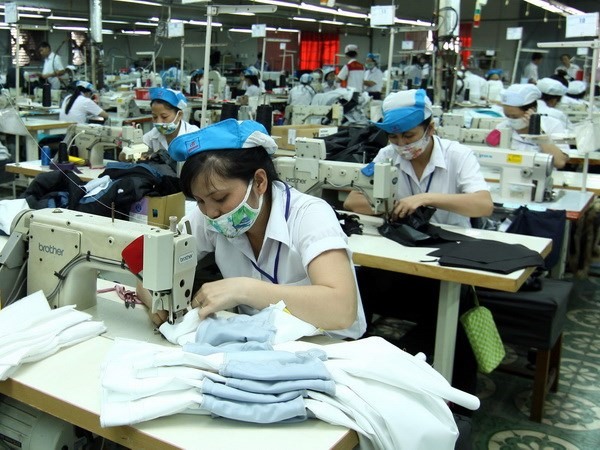Viet Nam’s economy is on a more positive growth momentum than last year, with strong foreign direct investment (FDI) capital inflows, increased foreign exchange reserves and strictly controlled foreign debts, according to Fitch Ratings.

Viet Nam’s economy is on a more positive growth momentum than last year, with strong foreign direct investment (FDI) capital inflows, increased foreign exchange reserves and strictly controlled foreign debts, according to Fitch Ratings.
At the ‘Fitch on Vietnam’ forum held in Ha Noi on Friday, Sagarika Chandra, Fitch’s associate director and primary sovereign analyst for Viet Nam, said Fitch Ratings last month upgraded Viet Nam’s long-term foreign-currency issuer default rating (IDR) to “BB” from “BB-” with a stable outlook, thanks to the country’s improved external buffers and strong macroeconomic performance.
Compared to other emerging countries as well as other “BB” rated peers, Viet Nam currently has a high growth rate, Chandra said, adding that the country’s GDP (gross domestic product) growth accelerated to 6.8 per cent in 2017 and looks set to grow by another 6.7 per cent this year.
This is one of the important factors in upgrading Viet Nam’s credit rating, she added.
Besides, the country’s macroeconomic stability, a cushion against external shocks and satisfaction in certain financial criteria were also key drivers for Fitch’s upgrading to Viet Nam, she said, adding that the Vietnamese Government adopted a flexible exchange-rate mechanism in January 2016 besides pledging to limit the national debts and restructuring State-owned enterprises (SOEs).
According to Fitch’s forecast, Viet Nam will “remain among the fastest-growing economies in the Asia-Pacific region, and fastest among ‘BB’ rated peers.
At the forum, many experts also pointed out that Viet Nam’s economy has several internal and external strengths, ranging from capital inflows, labour and productivity in the agricultural, processing and manufacturing sectors, which creates a sustainable structure.
Can Van Luc, chief economist of the Bank for Development Investment of Vietnam (BIDV), said that the Vietnamese economy has many positive outlooks with the recognition of international organisations such as the World Bank (WB) that has recently also raised its outlook for Viet Nam’s economic growth to 6.8 per cent from the previous forecast of 6.5 per cent.
According to Luc, increase in the private sector spending (at about 10 per cent in the past year) and the private investment capital source are also causes making Vietnamese economy more attractive.
In addition to positive factors, Sebastian Eckardt, lead economist of the World Bank in Viet Nam, pointed out some risks and challenges for the country’s economy in the coming time.
With a highly open economy, Viet Nam is likely to be exposed to external factors, such as trade wars, high oil prices or geopolitical instability, he said.
In addition, tightened monetary policies of central banks will also have a great impact on the world’s economy and of course, Viet Nam is not out of the circle of influence, he said. — VNS





